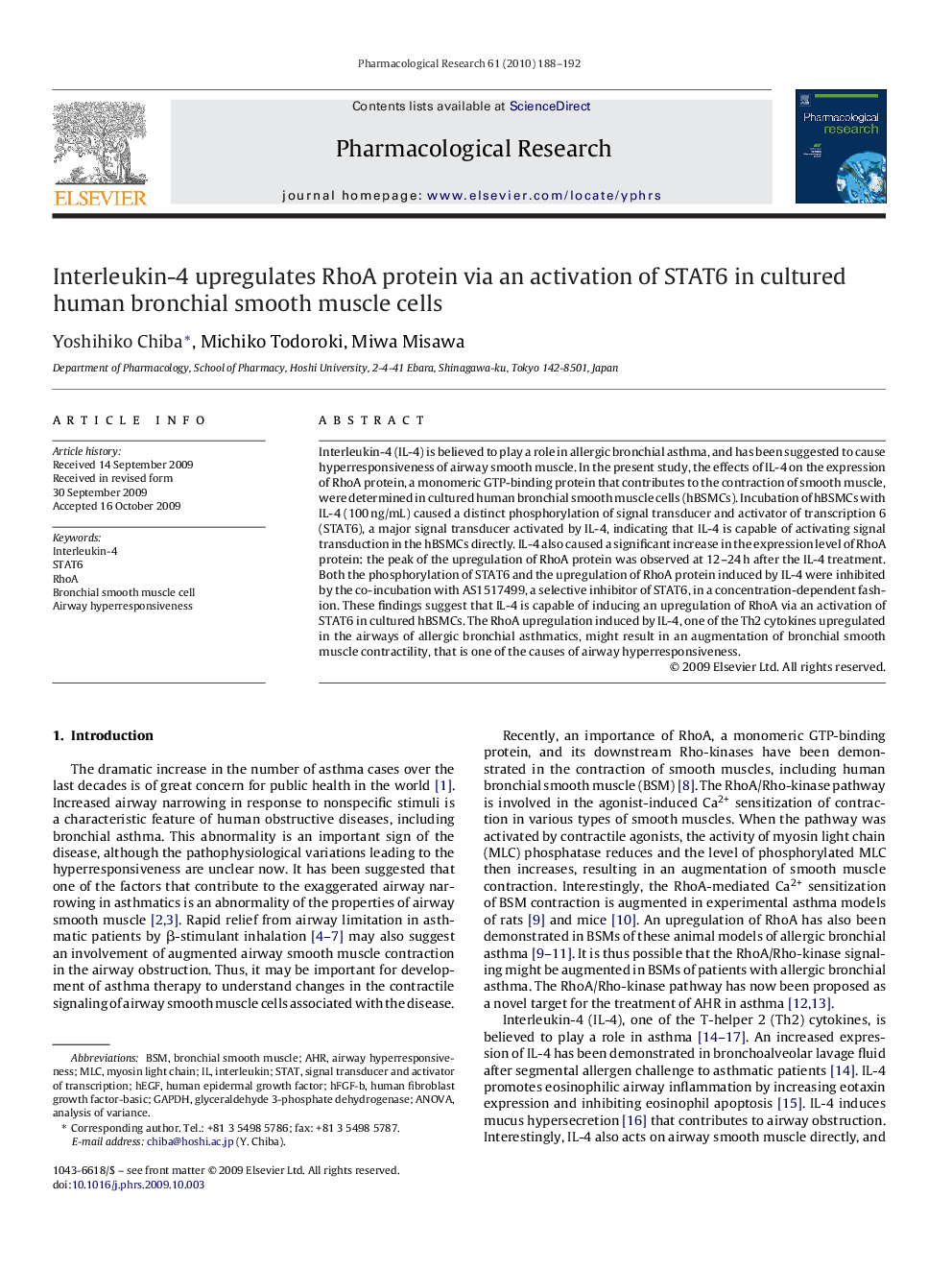| Article ID | Journal | Published Year | Pages | File Type |
|---|---|---|---|---|
| 2562811 | Pharmacological Research | 2010 | 5 Pages |
Interleukin-4 (IL-4) is believed to play a role in allergic bronchial asthma, and has been suggested to cause hyperresponsiveness of airway smooth muscle. In the present study, the effects of IL-4 on the expression of RhoA protein, a monomeric GTP-binding protein that contributes to the contraction of smooth muscle, were determined in cultured human bronchial smooth muscle cells (hBSMCs). Incubation of hBSMCs with IL-4 (100 ng/mL) caused a distinct phosphorylation of signal transducer and activator of transcription 6 (STAT6), a major signal transducer activated by IL-4, indicating that IL-4 is capable of activating signal transduction in the hBSMCs directly. IL-4 also caused a significant increase in the expression level of RhoA protein: the peak of the upregulation of RhoA protein was observed at 12–24 h after the IL-4 treatment. Both the phosphorylation of STAT6 and the upregulation of RhoA protein induced by IL-4 were inhibited by the co-incubation with AS1517499, a selective inhibitor of STAT6, in a concentration-dependent fashion. These findings suggest that IL-4 is capable of inducing an upregulation of RhoA via an activation of STAT6 in cultured hBSMCs. The RhoA upregulation induced by IL-4, one of the Th2 cytokines upregulated in the airways of allergic bronchial asthmatics, might result in an augmentation of bronchial smooth muscle contractility, that is one of the causes of airway hyperresponsiveness.
